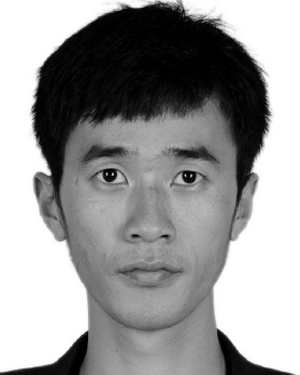Abstract:
Deep neural networks (DNNs) have been regarded as fundamental tools for many disciplines. Meanwhile, they are known for their large-scale parameters, high redundancy in w...Show MoreMetadata
Abstract:
Deep neural networks (DNNs) have been regarded as fundamental tools for many disciplines. Meanwhile, they are known for their large-scale parameters, high redundancy in weights, and extensive computing resource consumptions, which pose a tremendous challenge to the deployment in real-time applications or on resource-constrained devices. To cope with this issue, compressing DNNs for accelerating its inference has drawn extensive interest recently. The basic idea is to prune parameters with little performance degradation. However, the overparameterized nature and the conflict between parameters reduction and performance maintenance make it prohibitive to manually search the pruning parameter space. In this paper, we formally establish filter pruning as a multiobjective optimization problem, and propose a knee-guided evolutionary algorithm (KGEA) that can automatically search for the solution with quality tradeoff between the scale of parameters and performance, in which both conflicting objectives can be optimized simultaneously. In particular, by incorporating a minimum Manhattan distance approach, the search effort in the proposed KGEA is explicitly guided toward the knee area, which greatly facilitates the manual search for a good tradeoff solution. Moreover, the parameter importance is directly estimated on the criterion of performance loss, which can robustly identify the redundancy. In addition to the knee solution, a performance-improved model can also be found in a fine-tuning-free fashion. The experiments on compressing fully convolutional LeNet and VGG-19 networks validate the superiority of the proposed algorithm over the state-of-the-art competing methods.
Published in: IEEE Transactions on Cybernetics ( Volume: 51, Issue: 3, March 2021)
Funding Agency:

College of Computer Science, Sichuan University, Chengdu, China
Yao Zhou (S’14) is currently pursuing the Ph.D. degree in computer science with the Machine Intelligence Laboratory, College of Computer Science, Sichuan University, Chengdu, China.
From 2017 to 2019, he was a joint Ph.D. student with the School of Electrical and Computer Engineering, Oklahoma State University, Stillwater, OK, USA, financed by the China Scholarship Council. His current research interests include deep neura...Show More
Yao Zhou (S’14) is currently pursuing the Ph.D. degree in computer science with the Machine Intelligence Laboratory, College of Computer Science, Sichuan University, Chengdu, China.
From 2017 to 2019, he was a joint Ph.D. student with the School of Electrical and Computer Engineering, Oklahoma State University, Stillwater, OK, USA, financed by the China Scholarship Council. His current research interests include deep neura...View more

School of Electrical and Computer Engineering, Oklahoma State University, Stillwater, OK, USA
Gary G. Yen (S’87–M’88–SM’97–F’09) received the Ph.D. degree in electrical and computer engineering from the University of Notre Dame, Notre Dame, IN, USA, in 1992.
He was with the Structure Control Division, U.S. Air Force Research Laboratory, Albuquerque, NM, USA. He joined Oklahoma State University, Stillwater, OK, USA, in 1997, where he is currently a Regents Professor with the School of Electrical and Computer Enginee...Show More
Gary G. Yen (S’87–M’88–SM’97–F’09) received the Ph.D. degree in electrical and computer engineering from the University of Notre Dame, Notre Dame, IN, USA, in 1992.
He was with the Structure Control Division, U.S. Air Force Research Laboratory, Albuquerque, NM, USA. He joined Oklahoma State University, Stillwater, OK, USA, in 1997, where he is currently a Regents Professor with the School of Electrical and Computer Enginee...View more

College of Computer Science, Sichuan University, Chengdu, China
Zhang Yi (F’16) received the Ph.D. degree in mathematics from the Institute of Mathematics, Chinese Academy of Science, Beijing, China, in 1994.
He is a Professor with the Machine Intelligence Laboratory, College of Computer Science, Sichuan University, Chengdu, China, where he was the Dean from 2008 to 2017. He has coauthored three books entitled Convergence Analysis of Recurrent Neural Networks (Kluwer, 2004), Neural Net...Show More
Zhang Yi (F’16) received the Ph.D. degree in mathematics from the Institute of Mathematics, Chinese Academy of Science, Beijing, China, in 1994.
He is a Professor with the Machine Intelligence Laboratory, College of Computer Science, Sichuan University, Chengdu, China, where he was the Dean from 2008 to 2017. He has coauthored three books entitled Convergence Analysis of Recurrent Neural Networks (Kluwer, 2004), Neural Net...View more

College of Computer Science, Sichuan University, Chengdu, China
Yao Zhou (S’14) is currently pursuing the Ph.D. degree in computer science with the Machine Intelligence Laboratory, College of Computer Science, Sichuan University, Chengdu, China.
From 2017 to 2019, he was a joint Ph.D. student with the School of Electrical and Computer Engineering, Oklahoma State University, Stillwater, OK, USA, financed by the China Scholarship Council. His current research interests include deep neural networks, evolutionary computation, and their applications.
Yao Zhou (S’14) is currently pursuing the Ph.D. degree in computer science with the Machine Intelligence Laboratory, College of Computer Science, Sichuan University, Chengdu, China.
From 2017 to 2019, he was a joint Ph.D. student with the School of Electrical and Computer Engineering, Oklahoma State University, Stillwater, OK, USA, financed by the China Scholarship Council. His current research interests include deep neural networks, evolutionary computation, and their applications.View more

School of Electrical and Computer Engineering, Oklahoma State University, Stillwater, OK, USA
Gary G. Yen (S’87–M’88–SM’97–F’09) received the Ph.D. degree in electrical and computer engineering from the University of Notre Dame, Notre Dame, IN, USA, in 1992.
He was with the Structure Control Division, U.S. Air Force Research Laboratory, Albuquerque, NM, USA. He joined Oklahoma State University, Stillwater, OK, USA, in 1997, where he is currently a Regents Professor with the School of Electrical and Computer Engineering. His current research interests include intelligent control, computational intelligence, conditional health monitoring, signal processing, and their industrial/defense applications.
Dr. Yen was a recipient of the Andrew P. Sage Best Transactions Paper Award from the IEEE Systems, Man and Cybernetics Society in 2011 and the Meritorious Service Award from the IEEE Computational Intelligence Society in 2014. He served as the General Chair for the 2003 IEEE International Symposium on Intelligent Control held in Houston, TX, USA, and the 2006 IEEE World Congress on Computational Intelligence held in Vancouver, BC, Canada. He served as the Vice President for the Technical Activities from 2005 to 2006 and then the President of the IEEE Computational Intelligence Society from 2010 to 2011. He was an Associate Editor of the IEEE Control Systems Magazine; the IEEE Transactions on Control Systems Technology; Automatica; Mechantronics; the IEEE Transactions on Systems, Man and Cybernetics— Part A: Systems and Humans; the IEEE Transactions on Systems, Man and Cybernetics— Part B: Cybernetics; and the IEEE Transactions on Neural Networks. He was the Founding Editor-in-Chief of the IEEE Computational Intelligence Magazine from 2006 to 2009. He is currently serving as an Associate Editor for the IEEE Transactions on Evolutionary Computation and the IEEE Transactions on Cybernetics.
Gary G. Yen (S’87–M’88–SM’97–F’09) received the Ph.D. degree in electrical and computer engineering from the University of Notre Dame, Notre Dame, IN, USA, in 1992.
He was with the Structure Control Division, U.S. Air Force Research Laboratory, Albuquerque, NM, USA. He joined Oklahoma State University, Stillwater, OK, USA, in 1997, where he is currently a Regents Professor with the School of Electrical and Computer Engineering. His current research interests include intelligent control, computational intelligence, conditional health monitoring, signal processing, and their industrial/defense applications.
Dr. Yen was a recipient of the Andrew P. Sage Best Transactions Paper Award from the IEEE Systems, Man and Cybernetics Society in 2011 and the Meritorious Service Award from the IEEE Computational Intelligence Society in 2014. He served as the General Chair for the 2003 IEEE International Symposium on Intelligent Control held in Houston, TX, USA, and the 2006 IEEE World Congress on Computational Intelligence held in Vancouver, BC, Canada. He served as the Vice President for the Technical Activities from 2005 to 2006 and then the President of the IEEE Computational Intelligence Society from 2010 to 2011. He was an Associate Editor of the IEEE Control Systems Magazine; the IEEE Transactions on Control Systems Technology; Automatica; Mechantronics; the IEEE Transactions on Systems, Man and Cybernetics— Part A: Systems and Humans; the IEEE Transactions on Systems, Man and Cybernetics— Part B: Cybernetics; and the IEEE Transactions on Neural Networks. He was the Founding Editor-in-Chief of the IEEE Computational Intelligence Magazine from 2006 to 2009. He is currently serving as an Associate Editor for the IEEE Transactions on Evolutionary Computation and the IEEE Transactions on Cybernetics.View more

College of Computer Science, Sichuan University, Chengdu, China
Zhang Yi (F’16) received the Ph.D. degree in mathematics from the Institute of Mathematics, Chinese Academy of Science, Beijing, China, in 1994.
He is a Professor with the Machine Intelligence Laboratory, College of Computer Science, Sichuan University, Chengdu, China, where he was the Dean from 2008 to 2017. He has coauthored three books entitled Convergence Analysis of Recurrent Neural Networks (Kluwer, 2004), Neural Networks: Computational Models and Applications (Springer, 2007), and Subspace Learning of Neural Networks (CRC, 2010). His current research interests include neural networks and big data.
Dr. Yi was an Associate Editor of the IEEE Transactions on Neural Networks and Learning Systems from 2009 to 2012. He has been an Associate Editor of the IEEE Transactions on Cybernetics since 2014.
Zhang Yi (F’16) received the Ph.D. degree in mathematics from the Institute of Mathematics, Chinese Academy of Science, Beijing, China, in 1994.
He is a Professor with the Machine Intelligence Laboratory, College of Computer Science, Sichuan University, Chengdu, China, where he was the Dean from 2008 to 2017. He has coauthored three books entitled Convergence Analysis of Recurrent Neural Networks (Kluwer, 2004), Neural Networks: Computational Models and Applications (Springer, 2007), and Subspace Learning of Neural Networks (CRC, 2010). His current research interests include neural networks and big data.
Dr. Yi was an Associate Editor of the IEEE Transactions on Neural Networks and Learning Systems from 2009 to 2012. He has been an Associate Editor of the IEEE Transactions on Cybernetics since 2014.View more


